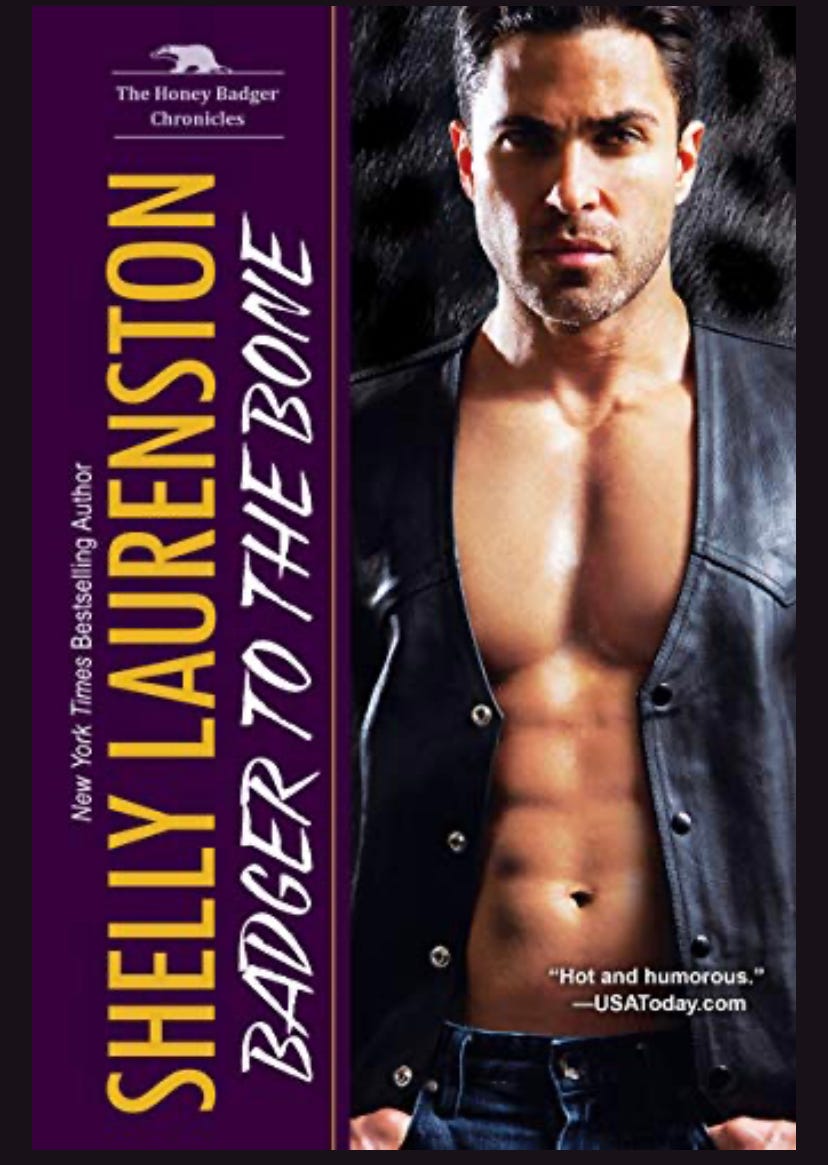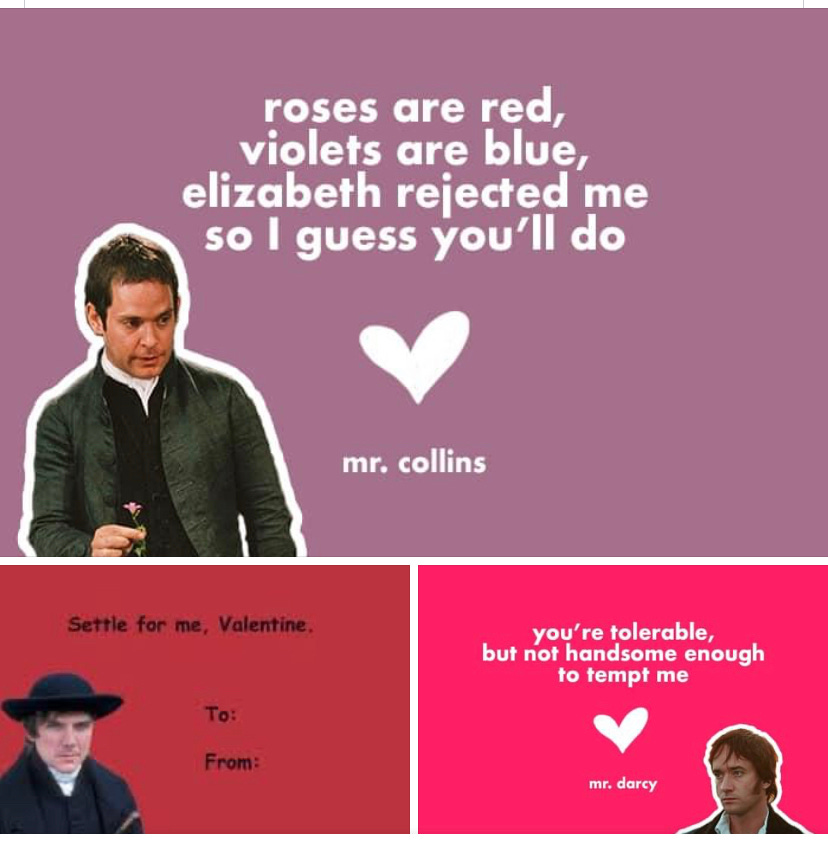I know what you are thinking: “Valentine’s Day was yesterday! You’re late!” Shows what you know. The day after Valentine’s Day is an excellent time to celebrate romance without all the stressful expectations and consumerist hoopla. One February 15 when I was in grad school, I threw an EPIC Valentine’s Day party. It rocked on into the wee hours. A table was broken. Total strangers crashed the party because they could hear it from the street and thought it sounded awesome. Two friends stopped by after a successful first date and got married the next year. Not that I’m giving my party any credit for their happy thirty-year marriage, but. . . .
All this is by way of saying that for most of my life I have been a romantic, but one who rejects conventional ideas about romance. And so, until last year, I stubbornly refused to read romance novels. This wasn’t (only) literary snobbery; the few times I gave romance a try, it seemed like the authors spent an inordinate amount of time describing such tedious (to me) subjects as fashion and desserts. And then there are all those ads my Kindle shows me for Brother’s Billionaire Best Friend Shape-Shifter romance:

Then the New York Times performed an invaluable service: Its book review section started running a romance column. Embarrassing as it is for me to admit this, given how much I tend to rag on the Times in this Substack, I really did feel that if the Times was giving romance its imprimatur, then it was ok for me to give it a try too. So today, readers, I would like to perform the same service for you. If you think romance is not for you, you might just not have found the right books yet. Keep reading for some recommendations, which I have helpfully put in boldface.
Romance and Horror
Romance is a billion-dollar industry and accounts for nearly a quarter of the total fiction market, more than any other genre except “general fiction.” It is the most profitable book category on Amazon. Romance is a lot like horror, actually. No, hear me out: Just as romance is the most profitable category for books on Amazon, horror is the most profitable category of film for return on investment.1 And yet neither genre gets any respect in the highbrow world.
It is common to argue that critics disrespect romance because its audience is women, but that doesn’t account for the similarly dismissive attitude toward horror, which appeals more to men. I think the real issue is that these two genres fulfill a psychological need that some people may find shameful. Horror and romance raise our pulse and put us under temporary—and pleasurable—stress, while also reassuring us that things will be ok in the end. (Other categories of genre fiction like mysteries and spy novels do this too.) Romance and horror are also built on common tropes, and we enjoy seeing how the stories play with and adapt them. Security, familiarity, and a little frisson is a powerful combination. Even though the highbrow world may want us to challenge our intellects, pursue novelty, and improve ourselves through the media we consume, it is also ok to enjoy familiar pleasures and to take comfort in knowing that everything will work out well in the end.
Romance in Literature
The irony is that much of what we now consider highbrow literature could also be considered romance. For example, Much Ado about Nothing is an enemies-to-lovers romance. The heroine, witty and whip-smart Beatrice, is no shy maiden. She is clear about her desires: “He that is more than a youth is not for me, and he that is less than a man, I am not for him.” She obviously still loves her ex-boyfriend, Benedick—and he her. Why else do they bicker constantly, and with so much emotion? Why else is it so easy for their friends to trick them into declaring their love for each other?
The play even has a Romantic False Lead trope (in this trope a heroine briefly dates—or thinks about dating—an inappropriate guy). In Much Ado, it’s Don Pedro, who, temptingly, is no mere duke or earl but an actual prince. He proposes to Beatrice at the party: “Will you have me, lady?” But even when Don Pedro is played by an actor with the supernova-level charisma of Denzel Washington, Beatrice is able to resist his appeal and respond, sensibly, “No, my lord, unless I might have another for working-days. Your Grace is too costly to wear every day.” And it’s a good thing, too, because Don Pedro later slut-shames poor Hero for something she didn’t even do, based on the say-so of his villainous bastard brother. What a cad.

Everyone knows that the novels of Jane Austen are subtly vicious satires of some deserving targets, as well as deeply moving explorations of the feelings of vulnerable people in an unjust society. But they are also romances. They all feature Romantic False Leads, who are bounders (John Thorpe and Mr. Wickham), outrageous flirts (Mr. Willoughby, Wickham, and Frank Churchill), sleazebags (Wickham, Frank Crawford, and William Elliot), possible pedophiles (Wickham again),2 or mercenary (literally all of them, although, to be fair, so, of necessity, are many of the women).

Northanger Abbey riffs on supernatural romance. Sense and Sensibility is a second-chance romance. Pride and Prejudice is enemies-to-lovers. Emma is friends-to-lovers, and Mansfield Park is step-siblings-to-lovers.3 And, most poignantly of all, Persuasion tells of a forbidden young love and a second chance at happiness. Contemporary romance writers didn’t invent these tropes, after all. They came from Jane Austen!
If you still think you are not a romance person, I invite you to read any of these novels or to watch the outstanding Ang Lee film of Sense and Sensibility, starring Emma Thompson and, as the heroes, Hugh Grant—who is so bashful that his head threatens, turtle-like, to retreat into his Regency collar—and the elegant, ardent, deep-voiced Alan Rickman. Or you could watch the wonderful 1995 Pride and Prejudice adaption, starring Jennifer Ehle and Colin Firth.
Cool your jets, ladies. I am not going to post that picture of Colin Firth in the shirt. Instead, let me share a lovely story of real-life romance from the world of Jane Austen movies: After being cheated on and dumped by her Much Ado co-star Kenneth Branagh, Emma Thompson met Greg Wise, who played Willoughby in Sense and Sensibility. Wise did have a brief dalliance with Kate Winslet (and who can blame him?), but then he and Thompson became an item. Wise is not only tall, dark, and handsome but also several years younger than Thompson. Reader, she married him, and almost thirty years later they are still together.

Regency and YA Romance: The Gateway Drug
The founding mother of Regency romance, whose scions are the authors of contemporary romances starring dukes, earls, and feisty maidens (for example, Bridgerton), is Georgette Heyer.4 Heyer’s novels are an absolute delight and feature such stock characters as hypochondriac aunts; worldly-wise older women; foppish uncles; greedy hangers-on; headstrong, adventurous young women; clever and wise heroines in their mid-twenties who are not nearly as over-the-hill as everyone thinks; and shrewd, superficially cold, but actually hot-blooded, extremely tall heroes. (Heyer evidently had a thing for very tall men.) Yes, there are descriptions of fashion, but it’s all being worn by the men, who prance around in satin and lace and—in These Old Shades—affect a painted chicken-skin fan that soon becomes all the rage. My favorite Heyer novel is The Masqueraders, in which a brother and sister, on the run from the French Revolution, disguise themselves by cross-dressing, and hijinks worthy of Twelfth Night ensue. I also love The Quiet Gentleman and The Unknown Ajax, both featuring heroes who have been misunderestimated. But really you can’t go wrong with any of Heyer’s Regency romances. Pick one up to see for yourself!
The most popular YA series—The Hunger Games, Divergent, Twilight, etc.—are not only supernatural dystopian adventures but also romances. (Team Peeta!) My favorite YA-turned-romance writer is Rainbow Rowell, whose funny, deeply romantic books confront issues of social class and troubled families in thought-provoking ways. In Fangirl, Cath is struggling as a new college student and has a difficult relationship with her identical twin and ineffectual father. She distracts herself from her problems, and her growing attraction to her friend Levi, by writing a fan fiction of a Harry Potter–like book series. A subsequent Rowell novel, Carry On, Simon, turns out to be the fan fiction she was writing. So clever!
My favorite Rowell novel is Attachments, in which the hero and heroine have the opposite of a meet-cute. Lincoln is hired by a small-town newspaper to be an online snoop and read employees’ emails. He falls in love with Beth without ever having seen her, based on her lively, kind, and funny emails to her best friend. Meanwhile, Beth has spotted a hunky guy at work and falls in love with him, based only on his appearance. But Lincoln has a couple of obstacles to overcome before he wins his lady love. For one thing, he is almost thirty and still lives with his mother (who is a hilarious combination of hippie and helicopter), and, for another, Beth already has a boyfriend, who is literally a rock star. You will love how a dea ex machina, in the form of Doris, an older lady who stocks the office vending machine, helps Lincoln learn to stand up for himself and become worthy of Beth.
Going All the Way (Pun Intended) Romance
Fair warning: The books I recommend below all have their R-rated sections, so if this isn’t your cup of tea, you may want to skip them (or their penultimate chapters). On the other hand, if this warning has sparked your interest, you can hold your head high. These books are putting some good into the world, because sex in romance novels is more than mere titillation. Romance fills a gap in our culture: Women in romance are not simply a collection of body parts that exist for men’s pleasure.5 Instead, they are full human beings whose needs and desires matter. No wonder women love romance novels! Below are three spicy romances I highly recommend:
Book Lovers, by Emily Henry. You know those Hallmark Christmas movies, where a guy goes to a small town and meets a wholesome, down-to-earth girl and dumps his hard-charging, aggressively ambitious city girlfriend? Well, Book Lovers is that hard-charging woman’s story. Nora is a successful New York literary agent who loves her work. After she is dumped for the umpteenth time, Nora’s sister, Libby, decides that the two of them need to visit a small town to see for themselves what all the fuss is about. The town is not nearly as charming as a Hallmark town, although it does feature two attractive single men. Nora and Libby have some issues to work out too. I love how this book resolves the question of which is more important—love, family, or career—with a resounding All of the above!
The Hating Game, by Sally Thorne. In this captivating enemies-to-lovers romance, Lucy and Josh spend their work hours glaring at each other and competing for their bosses’ attention and—they each hope—a plum promotion that only one of them can win. And yet in spite of their professed hatred for each other, they somehow keep getting stuck in elevators and broom closets together. Josh is not perfect; he has some family conflicts to work through, with Lucy’s help. And I predict that readers will enjoy the office paintball tournament. Who knew that the way a man plays paintball could be an expression of love?
Worthy of Love, by Quinn Ivins. Quinn is a friend who writes lesbian romance. Her books are suspenseful, smart, and full of sympathetic characters. Worthy of Love is my favorite. High-powered lawyer Nadine seemed to have it all: She was the chief of staff for a Hillary Clinton–type presidential candidate and was looking forward to following her to the White House. And then Nadine confesses to campaign finance violations, costing the candidate the election and Nadine her freedom. Now Nadine is out of prison, the entire country hates her, and she needs to earn her living at a minimum-wage job. Luckily, Nadine’s new coworker Bella is smart enough to figure out that Nadine is not the monster everyone says she is.
Are you sensing a theme here? The love stories in these novels don’t occur in a vacuum; the characters’ everyday lives, careers, friendships, and families are crucial for their happy endings. These romance novels, far from being unrealistic fantasies, are stories for all of us.
How about you, readers? What are your guilty pleasures—or do you reject the entire concept of the guilty pleasure? Do you have a favorite book to recommend? Please share your thoughts in the comments!
The Tidbit
Here’s a real-life romance, complete with a meet-cute: I was at Dulles Airport a few months ago, when an adorable, butterscotch, long-haired standard dachshund waddled down the concourse. Of course I had to run over and pet him. And then, just a minute later, another adorable, butterscotch, long-haired standard dachshund waddled up to us. “Are they from the same litter?” I asked. “No!” the owners said, astonished. “We’re total strangers.” Two adorable, butterscotch, long-haired standard dachshunds meet for the first time at the airport? What are the odds? Someone ought to turn this story into a rom-com!
I highly recommend the linked article (thanks to my friend Rose for letting me know about it). The article shows that rom-coms and mid-budget art films do much better than Marvel films and the various Avatars when it comes to return on investment. Hollywood producers take note!
Gee, Happy Wanderer, why don’t you tell us how you really feel about Wickham?
Yes, ew. Sir Thomas Bertram thinks it is safe to adopt his wife’s impoverished niece because she will be raised as a near-sibling to the Bertram kids, so romance is unlikely to blossom. Boy was he wrong!
I am amused by how thick on the ground dukes are in Regency romances, given that there are currently only twenty-four dukes in all of the UK, and I doubt that most of them are young, attractive, and single—or, for that matter, looking for someone to collaborate in a fake engagement under some flimsy pretext or other.
I’m not even referring only to porn. Too many popular movies, books, and TV shows fail the Bechdel Test, and too often a female character’s most valued quality is her appearance.
Case in point, I once tried to read a Tom Clancy novel but quit when, on one of the first pages, the hero complains about his wife’s “regrettably small breasts.” Picture steam coming out of my ears. “Man up!” I wanted to say. “Be grateful you found a woman who will put up with you, and stop whining because she doesn’t have as much fat (or silicone) as you think she ought to have up top!” But I digress.





I am a big fan of Quin Ivins! I loved "The Love Factor." You don't have to be a lesbian (or a woman, or a man, or a whoever) to enjoy every genre. If the writing is good, it's good!
Thank you so much Mari ❤️